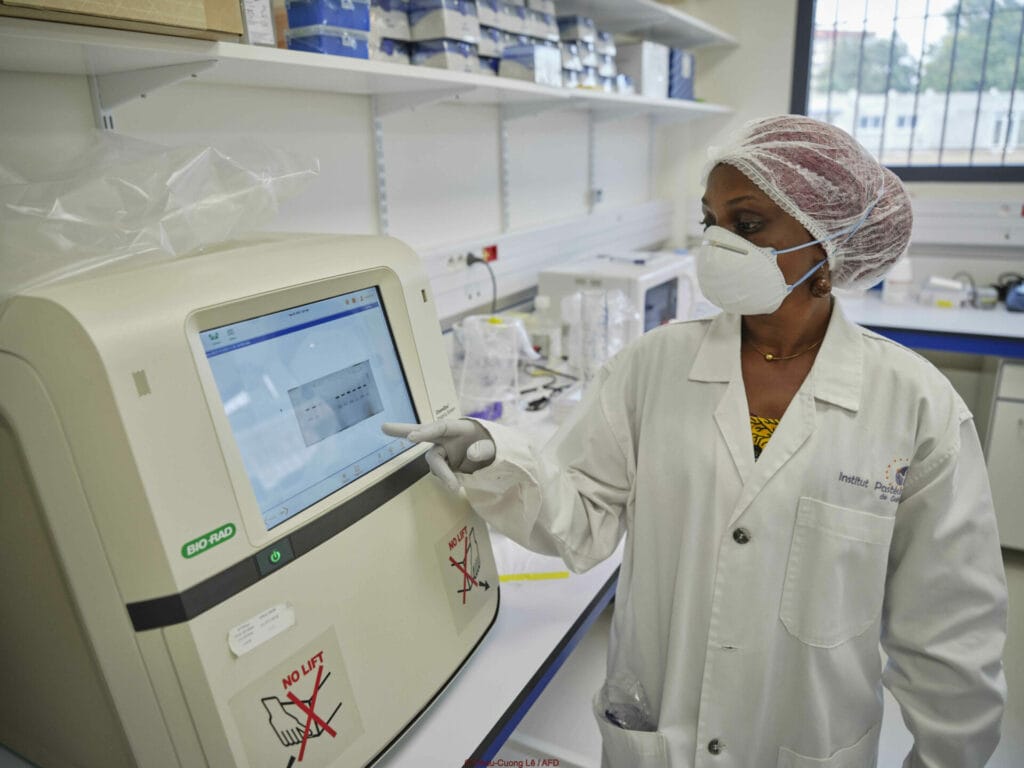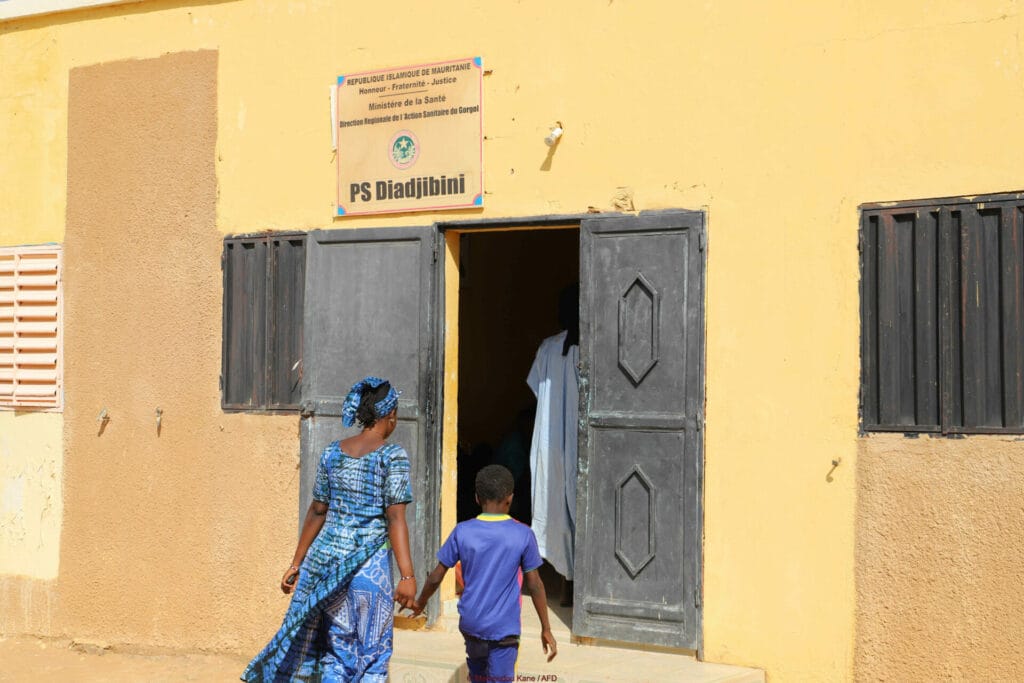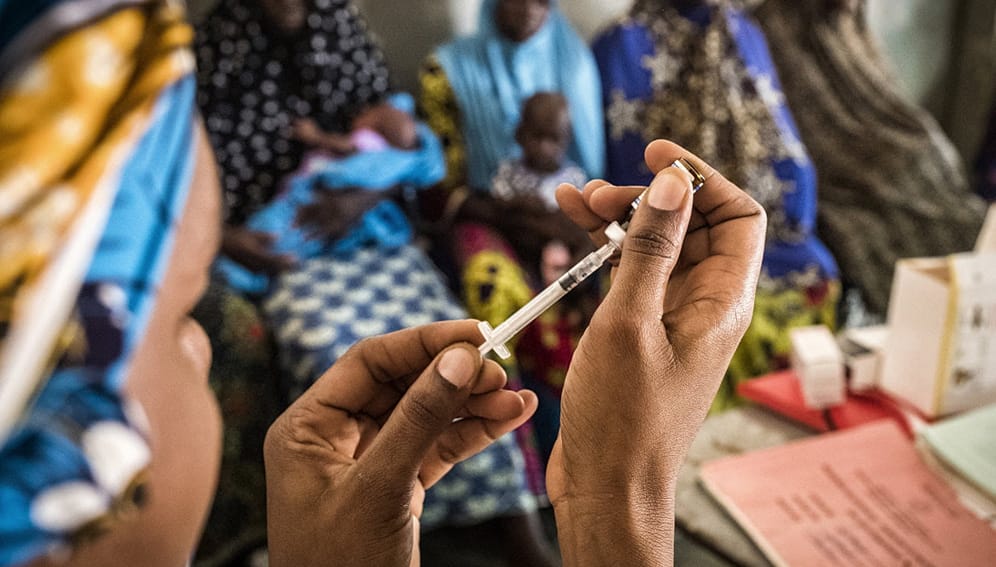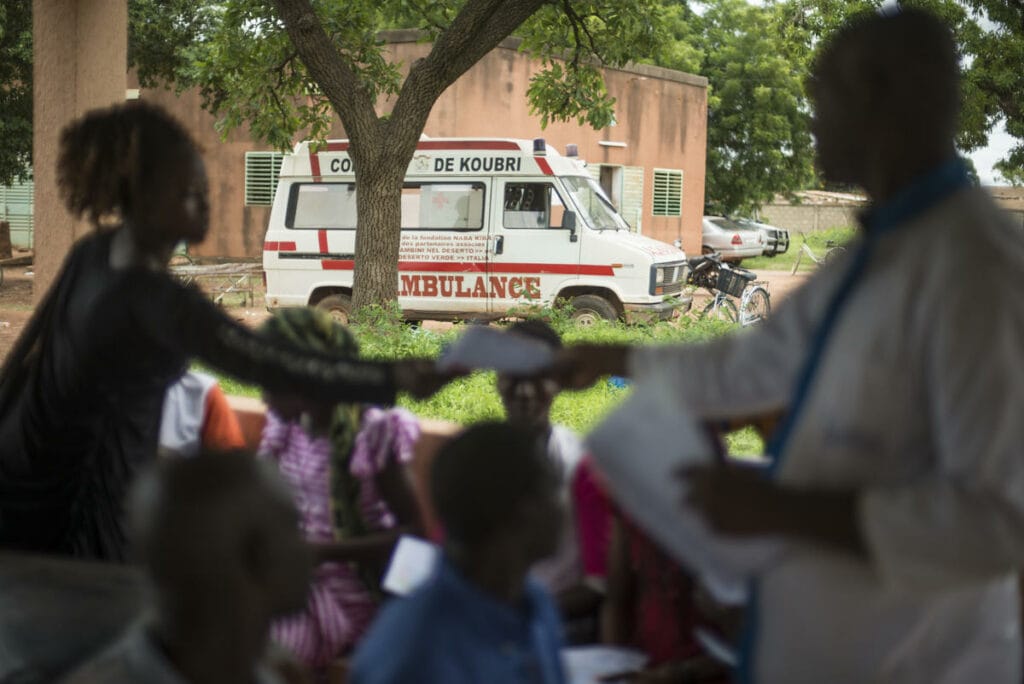L’Initiative mobilizes experts to conduct technical assistance missions with national stakeholders, with the aim of strengthening their skills and capacity to access, manage, and implement Global Fund grants.
What is technical assistance?
L’Initiative carries out technical assistance missions at the request of partners in eligible countries. Once approved by our Steering Committee, we initiate expert missions all year round. We adapt the format and frequency of our assistance to suit needs, for example intermittent expertise, enhanced support to meet strategic needs defined in advance with our partners, or the long-term placement of experts to work with national bodies. We draw on a diverse pool of experts, combining international, regional, and local specialists, to improve our understanding of issues in the field and foster knowledge sharing.
All Global Fund program stakeholders in countries eligible for L’Initiative’s support may apply for technical assistance.
- National applications may be submitted by:
– Country Coordinating Mechanisms (CCMs);
– Principal recipients, Sub-recipients, and Sub-sub-recipients of Global Fund grants;
– National pandemic control programs;
– Government agencies;
– Civil society organizations. - Regional applications may be submitted by one applicant organization, such as a regional coordination body.
We provide support for institutional stakeholders, civil society organizations, and the research community. Our expertise mainly includes:
Facilitating access to Global Fund grants: we help local actors to plan and quantify the country’s needs. To this end, we facilitate inclusive dialogue bringing together all the stakeholders involved in pandemic responses.
Governance: we support CCMs to encourage the active and inclusive participation of community organization representatives, and to consolidate strategic monitoring of Global Fund grants by stakeholders.
Implementing grants: we take action to reduce bottlenecks and structural weaknesses.
Our technical assistance missions last a maximum of 12 months and extend from the implementation phase through to achieving project objectives. One or more experts may conduct these missions, which may be short-term, iterative or recurring.
How to request technical assistance
Once requests for assistance have been examined by the L’Initiative team, they are presented to and assessed by the Steering Committee. Requests may be submitted all year round.
You will need to complete the following steps to apply for assistance:
Step 1 :
Download the documents required to prepare your application on our website:
-
Specifications of the assistance requested, to be completed according to the template provided;
-
A covering letter, to be completed and signed;
-
A copy of the letter informing the CCM of your application.
NB: When making a regional application, the CCM in each country must be informed and a copy of the letters informing each CCM must be included in the application.
Step 2 :
Send your application to the Cooperation and Cultural Affairs Department of the French Embassy in your country.
Step 3 :
The global health advisor will issue an opportunity announcement and seek the opinions of other stakeholders regarding your application (Global Fund, Agence Française de Développement, etc.).
> All requests for technical assistance will receive a detailed response from the French diplomatic network, as well as from technical and financial partners (WHO, UNAIDS, etc.).
Step 4 :
The project manager for the country will review your application to:
-
Verify that it is eligible for assistance;
-
Prepare a budget;
-
Gather any missing contextual information;
-
Present the application to the Steering Committee.
Step 5 :
Decision by the Steering Committee
-
Approved: you will then work with the project manager for the country to prepare, finalize, and discuss the terms of reference.
-
Not approved: you can redraft your application to take account of the committee’s recommendations before resubmitting your request.
Step 6 :
Implementation
Once your application has been approved, the next steps are as follows:
-
The project manager works with you to prepare the terms of reference;
-
An agreement is signed with Expertise France, the government agency for technical cooperation that runs L’Initiative;
-
A call for applications is issued to select the best team of experts according to your needs;
-
The selected experts’ CVs are submitted to you for approval;
-
The mission starts three months later.
> In emergency situations, experts can arrive in the country one week after the application is approved.
For more information
If you are not sure whether your request is eligible for support, please contact us or the global health advisor at the French Embassy.

Flagship technical assistance missions
Here are a few examples of technical assistance missions that represent our fields of action and expertise.
Assessing the effectiveness of antimalarial treatments in Djibouti
Since 2013, there has been an upsurge of malaria cases in Djibouti. This is largely due to the arrival of new disease vectors from Asia, in conjunction with the growing resistance of parasites to front-line treatments. One challenge facing the country is accurate diagnosis, which is difficult due to mutations in malaria parasites, and means that a large number of cases remain undetected. To address this situation, sequencing equipment was acquired to study the therapeutic effectiveness of front-line antimalarial drugs and monitor mosquito resistance to insecticides. L’Initiative mobilizes experts to train teams at the National Reference Laboratory to use this new equipment. The goal is to provide teams with all the information they need (protocol, reagent references, etc.) to perform a therapeutic effectiveness study without external assistance. Once trained, they will then be able to train other technicians to carry out sequencing and interpret the sequences obtained.


Assessing the factors behind low HIV screening rates among children in Benin and analyzing the status of pediatric care
The prevalence of HIV in Benin has been fairly stable since 2006, and currently stands at 0.8% of the general population. The country has worked with various national stakeholders to implement a screening and awareness-raising policy for people over the age of 15. However, HIV prevalence is substantially higher among children in Benin, standing at 6.38%. Only 27% of the country’s 8,900 children living with HIV are receiving antiretroviral treatment.
The National Program Against AIDS (PNLS) requested L’Initiative’s assistance to help identify the factors behind low screening rates among children and insufficient pediatric treatment for the disease within the country. Once the experts mobilized by L’Initiative—in partnership with the NGO Solthis—had analyzed the situation, they drew up recommendations to reduce the deficiencies observed and proposed strategies to improve treatment for children and teenagers. The results of this mission were used in the Global Fund grant application and will form the basis of the country’s future strategy to fight HIV/AIDS.
Supporting the transfer of scientific knowledge in Côte d’Ivoire
Founded in 1995, the PAC-CI program (ANRS research site in Côte d’Ivoire) conducts public health research, in particular on HIV/AIDS and associated/infectious diseases. Although the program has an international reputation for scientific excellence, it only has a limited impact within the country itself. The assistance provided by L’Initiative involves training and supporting the PAC-CI research team to transfer knowledge, so that their expertise and research is more widely publicized and integrated into policy by operational decision-makers and political stakeholders. The PAC-CI team will be able to apply these new skills by circulating the results of a study that is currently under way on the effectiveness and implementation of algorithms to screen and treat precancerous and cancerous cervical lesions in women living with HIV. To complement this approach, the experts mandated by L’Initiative will also strengthen the capacity of the Coalition of Organizations Against Cancer in Côte d’Ivoire (COLCC-CI) to carry out scientific advocacy. Using these new tools, PAC-CI will be able to leverage its expertise to train other civil society organizations and, ultimately, promote the inclusion of national knowledge on health in Global Fund grant applications.

Nos assistances techniques phares
Retrouvez ici quelques missions d’assistance techniques représentatives de nos champs d’action et savoir-faire.
